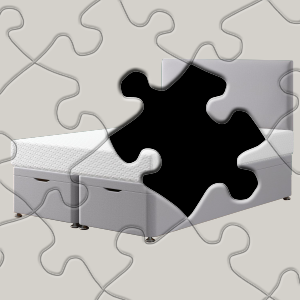21st Mar 2025
How Your Mattress Affects Your Sleep and Health
The quality of your sleep and overall health can be seriously impacted by the quality of your mattress. If you’re waking up feeling sore, experiencing discomfort throughout the night, or noticing a decline in the quality of your sleep, it might be a sign that your mattress is no longer serving your needs. Since your mattress plays a pivotal role in supporting your spine and providing the comfort necessary for restful sleep, replacing it at the right time can have a significant positive impact on your health and well-being.
Signs You Might Need a New Mattress
1. Waking Up Sore
If you regularly wake up with aches or stiffness, especially in your back, neck, or joints, your mattress may no longer be providing the necessary support. Over time, the materials in a mattress break down, leading to uneven support that can strain your body.
2. Visible Signs of Wear and Tear
If you notice sagging, lumps, or deep indentations on your mattress, it’s a clear sign that the structure is breaking down. These imperfections can lead to discomfort and disrupt your sleep quality.
3. Allergies or Asthma Getting Worse
Mattresses can accumulate dust mites, mould, and other allergens over time. If you’re noticing an increase in allergy symptoms or breathing problems, it might be due to the allergens trapped in your old mattress. Replacing it could alleviate these issues.
4. Your Mattress is Over 8 Years Old
Most mattresses are designed to last between 7 to 10 years. If your mattress is nearing or surpassing that age, it’s likely time for an upgrade. Even if it looks fine externally, the internal components may have lost their effectiveness in providing adequate support.
5. Trouble Sleeping
If you’re struggling to fall asleep or stay asleep, your mattress might be contributing to the problem. An uncomfortable or unsupportive mattress can affect your sleep cycle, making it harder to reach the restorative stages of sleep you need.

What to Consider When Choosing a New Mattress
1. Your Sleep Position, Weight, and Personal Preferences
When shopping for a new mattress, it’s essential to consider your sleep habits. Do you sleep on your back, side, or stomach? Different mattresses cater to different sleep positions. Your weight and personal comfort preferences also play a significant role in choosing the right firmness level and material. For example, heavier individuals may benefit from a firmer mattress for better support, while lighter individuals may prefer a softer mattress.
2. Medium-Firmness and/or Adjustable Firmness
Medium-firm mattresses are often recommended for a wide range of sleepers because they strike a balance between support and comfort. However, some people prefer the option of adjustable firmness, especially if they share a bed with someone whose preferences differ. Adjustable firmness allows you to tailor the support based on personal needs, providing a customisable sleeping experience.
3. Long Sleep Trials
It’s important to choose a mattress company that offers a generous sleep trial period. Many companies offer sleep trials lasting at least 90 days, giving you ample time to test the mattress in the comfort of your home. This allows you to determine if it’s the right fit for you without the pressure of making a quick decision. However, always check the return policy before purchasing to ensure you can return the mattress if it doesn’t work for you.
Investing in a new mattress can make a world of difference in your sleep quality and overall health. By being mindful of the signs that it’s time for a replacement and considering the factors that best suit your sleeping preferences, you can choose a mattress that promotes restful, pain-free sleep.


















